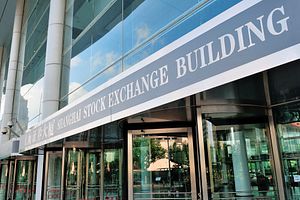China’s stock market has been roaring in the last several months, as investors search for yield. Anecdotes abound of friends and family making impressively large gains. Television news anchors are buzzing with market updates. University students are trading stocks using their parents’ money, with little knowledge about how the stock market works. Does all of this mean that China’s stock market has arrived in the big leagues?
First, some facts. The Chinese stock market is the second largest in the world by equity value. The Shanghai Composite Index last week closed above 5,000 for the first time since 2008. Companies primarily listed in China were valued at the close on Friday at $9.7 trillion. The Shanghai-Hong Kong Stock Connect has created additional trading opportunities with funds soon to be added to sales of cross border shares, and a Shenzhen-Hong Kong Stock connect is expected open at the end of 2015.
Meanwhile, Chinese A- shares may soon be listed in MSCI index. The decision is to be made on June 9, and this would integrate locally traded shares into world financial markets. If Chinese shares are allowed to join this index, they would be incorporated into the MSCI China Index, Asian Indexes, and the MSCI Emerging Market Index. MSCI competitor the FTSE Group has already integrated Chinese A-shares into two emerging market indexes.
However, signs of a bubble remain. First, much of the stock market gains have been made on margin loans. Current margin debt stands at $227 billion. Loose monetary policy has increased the availability of cheap credit, inducing speculators to borrow funds for trading on the stock market. By contrast, periodic tightening of margin trading requirements has led investors to sell off their shares, amplifying volatility. For those holding margin loans, a sudden market turnaround could lead to widespread defaults on outstanding debt.
Further, the stock market has surged while the real economy has remained stagnant. A clear example is that of the department store sector, whose stocks have climbed while stores remain relatively empty. Real estate sales and production indices remain stagnant, indicating that the stock market has climbed based mainly on financial rather than productivity gains. Asset gains in the face of sluggish real growth are usually a clear sign of an asset price bubble. Ironically, China has just come out of a real estate asset price bubble only to enter a stock market bubble, again with irrationally exuberant expectations of ever-rising prices.
Finally, China’s stock markets lack efficiency. Despite the opening of the Shanghai-Hong Kong Stock Connect, which allows for freer trading of stocks between the two cities, stocks trading on the Mainland are sold at a 30 percent premium compared to the same listings in Hong Kong. Under efficiency conditions, the stocks would be sold at the same price in both places. While the Chinese stock market appeared to have outgrown its “casino” reputation in recent years, large herd-driven gains in the past few months refute the conclusion that the market is gaining in sophistication.
Therefore, while China’s stock market is certainly a huge attraction these days, it has clearly not yet arrived in the big leagues. Given an increase in financial deepening and an upward push in growth numbers, it will eventually get there. Right now, it’s wisest to avoid joining the stampede.
































